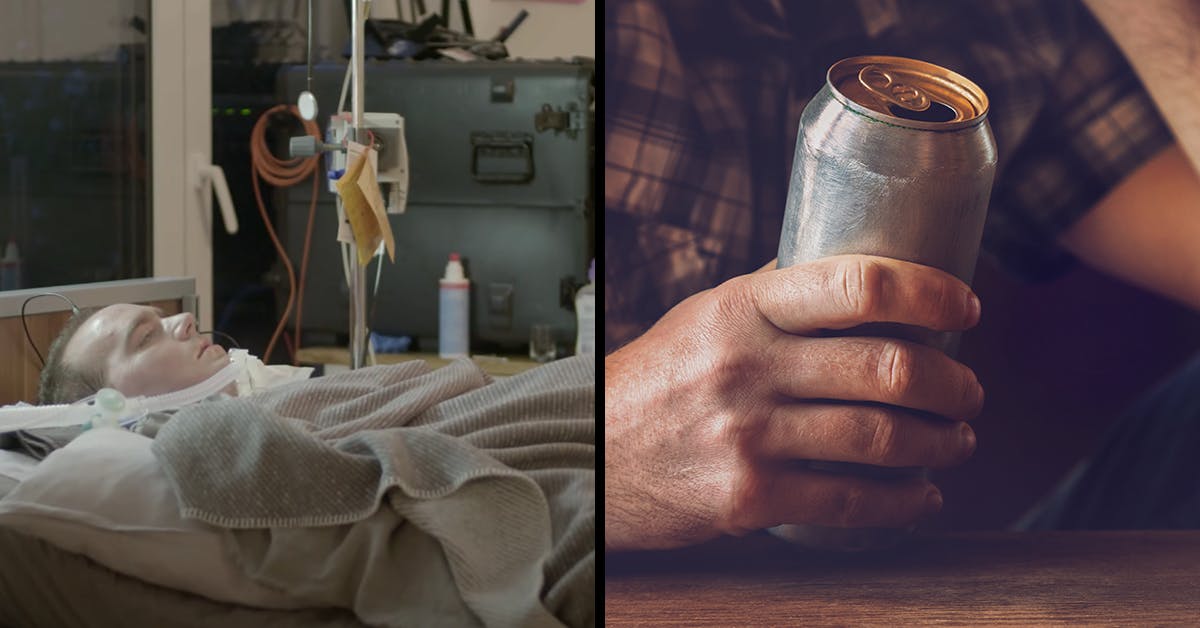
A 36-year-old man who was diagnosed with amyotrophic lateral sclerosis (ALS) and has become completely paralyzed has had a new surgical brain chip implanted. One of his first requests was to ask his caregivers for a beer.
The man is able to compose sentences at a rate of roughly one letter per minute by using brain signals to respond “yes” or “no” to a binary speller program on a laptop.
In addition to asking for a beer, the man requested to listen to the band Tool “loud,” asked for his mother to give him a head massage, and ordered curry for one of his meals. The two square electrodes arrays were surgically implanted into the main’s brain in March of 2019 after deteriorating to a locked-in state due to his ALS.
The progressive neurodegenerative disease has no known cure.
However, studies are continuing to be done on it, and those diagnosed with the disease typically have a life expectancy of two to five years after the onset of symptoms. One notable public figure who outlasted this prognosis was famed physicist Stephen Hawking, who lived for 55 years after he was first diagnosed. By the end of his life, he was relying on a communication device that he controlled with a single cheek muscle.
Researchers at Wyss Center for Bio and Neuroengineering in Geneva, Switzerland worked with the ALS patient to fit him with the brain implants.
This is the first time that a brain implant has been tested on a patient who is completely locked-in, which the man consented to in 2018 when he was still able to use eye movement to communicate. Researchers were uncertain if communication was possible for those who had complete loss of voluntary muscle control.
Dr. Jonas Zimmermann, a senior neuroscientist at the Wyss Center, said, “Ours is the first study to achieve communication by someone who has no remaining voluntary movement and hence for whom the BCI is now the sole means of communication.”
“This study answers a long-standing question about whether people with complete locked-in syndrome – who have lost all voluntary muscle control, including movement of the eyes or mouth – also lose the ability of their brain to generate commands for communication.”
Following three months of failed attempts, the surgeons were able to find a configuration that allowed the man to communicate when presented with letters. Three weeks later, he produced his first sentences and continued to do so over the course of the following year.
It took another three weeks to produce the first sentences, and over the next year the patient produced dozens of sentences.
A number of his requests involved keeping his head elevated and straight when he had visitors, but also he started making requests for different kinds of food, from goulash soup to sweet pea soup. He told caregivers once, “For food I want to have curry with potato then Bolognese and potato soup.”
The man also was able to communicate with his wife and four-year-old son, and said, “I love my cool son.”
Research related to this brain implant work was published in Nature Communications on March 22.
Researchers noted that patients can use the communication system at home via the patient’s laptop. The researchers are now seeking funding for other ALS patients, as the implants will cost around $500,000 for the first two years of use.
“This is an important step for people living with ALS who are being cared for outside the hospital environment,” said George Kouvas, Chief Technology Officer at the Wyss Center.
“This technology, benefiting a patient and his family in their own environment, is a great example of how technological advances in the BCI field can be translated to create direct impact.”
The post ‘I Want A Beer’—Completely Paralyzed Man Says First Words In Months Using Brain Implant appeared first on The Mother of All Nerds.
‘I Want A Beer’—Completely Paralyzed Man Says First Words In Months Using Brain Implant
Source: Pinoy Inquirer News
إرسال تعليق